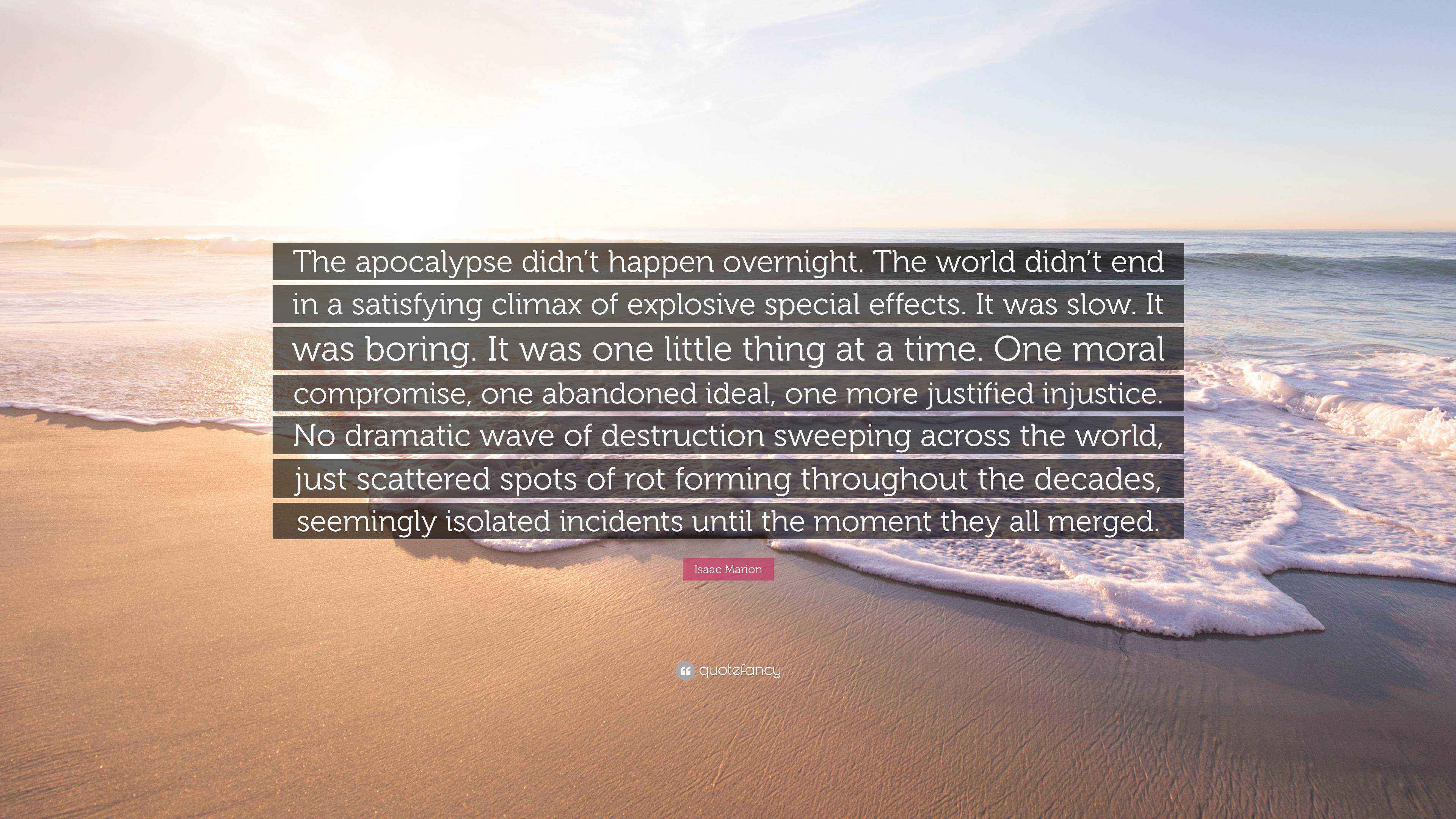Because The World Didn’t End When I Was 17: Embracing Life's Journey
Apr 01 2025
When we're 17, life can feel overwhelming and unpredictable, but the truth is, the world doesn't end when you're young and facing challenges. At that age, emotions run high, and every decision seems monumental. Whether it's academic pressure, social expectations, or personal struggles, it's easy to feel like the world is crumbling around you. However, hindsight teaches us that these moments, while difficult, are part of a larger journey that shapes who we become.
Understanding that "because the world didn't end when I was 17," can offer a powerful perspective. It's not just about surviving those turbulent years but learning to thrive despite the obstacles. This realization can inspire resilience and growth, reminding us that life is a continuous process of learning and adaptation.
This article will explore the emotional and psychological challenges faced during adolescence, the importance of mental health, and strategies for overcoming difficulties. By examining real-life stories, expert advice, and actionable tips, we aim to provide insight into why life continues beyond the struggles of youth and how to embrace this truth for a brighter future.
Read also:Mom Naughty Understanding The Phenomenon And Its Implications
Table of Contents
- Introduction
- Challenges of Adolescence
- The Importance of Mental Health
- Strategies for Overcoming Difficulties
- Life Beyond 17: Real-Life Stories
- Emotional Growth and Resilience
- Expert Advice on Navigating Adolescence
- The Role of Parental Support
- Creating a Positive School Environment
- Conclusion
Challenges of Adolescence
Adolescence is a period marked by significant physical, emotional, and social changes. For many, it’s a time of self-discovery, but it can also bring about immense pressure. Common challenges include academic expectations, peer pressure, identity formation, and emotional instability. These factors can create a sense of urgency and fear, often leading to the belief that "because the world didn't end when I was 17," is merely wishful thinking.
Academic Pressure: Many teenagers face immense pressure to excel academically, which can lead to stress and anxiety. The fear of failure can overshadow the joy of learning and personal growth.
Peer Pressure: Social acceptance becomes paramount during adolescence. Fitting in with peers can sometimes lead to compromising personal values or engaging in risky behaviors.
Identity Formation
Forming an identity is a crucial aspect of adolescence. It involves exploring different roles, interests, and values. This process can be confusing and challenging, but it is essential for developing a strong sense of self. By recognizing that "because the world didn't end when I was 17," individuals can approach identity formation with greater confidence and patience.
The Importance of Mental Health
Mental health plays a vital role in navigating the challenges of adolescence. It affects how teenagers think, feel, and act, influencing their ability to handle stress, relate to others, and make choices. Unfortunately, mental health issues are often stigmatized, leading many to suffer in silence.
According to the World Health Organization (WHO), approximately 10-20% of adolescents globally experience mental health conditions. Early intervention and support are critical to preventing long-term consequences. Understanding that "because the world didn't end when I was 17," can encourage young people to seek help and prioritize their mental well-being.
Read also:Unlock Your Potential Discover The Transformative Power Of Bootcamp Untalfredo
Signs of Mental Health Struggles
- Changes in mood or behavior
- Difficulty concentrating
- Withdrawal from social activities
- Physical symptoms like headaches or fatigue
Strategies for Overcoming Difficulties
Overcoming the challenges of adolescence requires a combination of self-awareness, support systems, and practical strategies. By implementing these techniques, teenagers can build resilience and confidence, reinforcing the belief that "because the world didn't end when I was 17," is a reality worth embracing.
Building Resilience
Resilience is the ability to bounce back from adversity. It involves developing coping skills, maintaining a positive outlook, and seeking support when needed. Activities such as journaling, mindfulness, and physical exercise can enhance resilience and promote mental well-being.
Seeking Support
Reaching out for help is a sign of strength, not weakness. Whether it’s talking to a trusted adult, counselor, or friend, having a support system can make a significant difference. Support groups and online resources can also provide valuable information and encouragement.
Life Beyond 17: Real-Life Stories
Hearing from others who have faced similar challenges can be incredibly empowering. Real-life stories demonstrate that "because the world didn't end when I was 17," is more than just a phrase; it’s a testament to the human capacity for growth and transformation.
Example 1: Sarah, now a successful entrepreneur, struggled with self-esteem issues during her teenage years. She credits her resilience and determination for overcoming those challenges and achieving her goals.
Example 2: John faced academic setbacks but chose to view them as opportunities for learning and improvement. Today, he is a respected professional in his field, proving that setbacks are not failures but stepping stones.
Lessons from Real-Life Stories
- Embrace challenges as opportunities for growth
- Develop a growth mindset
- Seek inspiration from others
Emotional Growth and Resilience
Emotional growth is a lifelong process that begins in adolescence. It involves developing emotional intelligence, managing stress, and building healthy relationships. By focusing on emotional growth, teenagers can enhance their resilience and well-being, reinforcing the belief that "because the world didn't end when I was 17," is a powerful truth.
Developing Emotional Intelligence
Emotional intelligence (EQ) refers to the ability to recognize, understand, and manage one’s emotions and the emotions of others. High EQ is associated with better mental health, stronger relationships, and greater success in life. Strategies for developing EQ include active listening, empathy, and self-reflection.
Expert Advice on Navigating Adolescence
Experts in psychology and education emphasize the importance of a supportive environment for adolescents. They recommend fostering open communication, setting realistic expectations, and encouraging self-expression. By following expert advice, parents, teachers, and peers can help teenagers navigate the challenges of adolescence with greater ease.
Dr. Jane Smith, a renowned psychologist, states, "Adolescence is a time of immense growth and discovery. By providing the right support and guidance, we can help young people realize that 'because the world didn't end when I was 17,' is a truth they can rely on."
Key Expert Recommendations
- Promote open communication
- Encourage self-expression
- Set realistic expectations
The Role of Parental Support
Parents play a crucial role in supporting their children during adolescence. By being attentive, understanding, and non-judgmental, parents can create a safe space for their teenagers to express themselves and seek guidance. This support can significantly impact their emotional well-being and development.
Ways Parents Can Help
- Listen actively and empathetically
- Offer encouragement and praise
- Provide resources for mental health support
Creating a Positive School Environment
Schools can also contribute to a positive environment for adolescents by promoting mental health awareness, offering counseling services, and fostering inclusive communities. By creating such an environment, schools can help students understand that "because the world didn't end when I was 17," is a reality they can trust.
Initiatives for Positive Change
- Mental health workshops
- Peer support programs
- Inclusive policies and practices
Conclusion
In conclusion, understanding that "because the world didn't end when I was 17," is a powerful perspective that can transform how we approach life’s challenges. By recognizing the importance of mental health, emotional growth, and supportive environments, we can empower young people to navigate adolescence with resilience and confidence.
We invite you to share your thoughts and experiences in the comments below. Your story could inspire others to embrace the truth that life continues beyond the struggles of youth. Additionally, explore our other articles for more insights into personal development and mental well-being.


